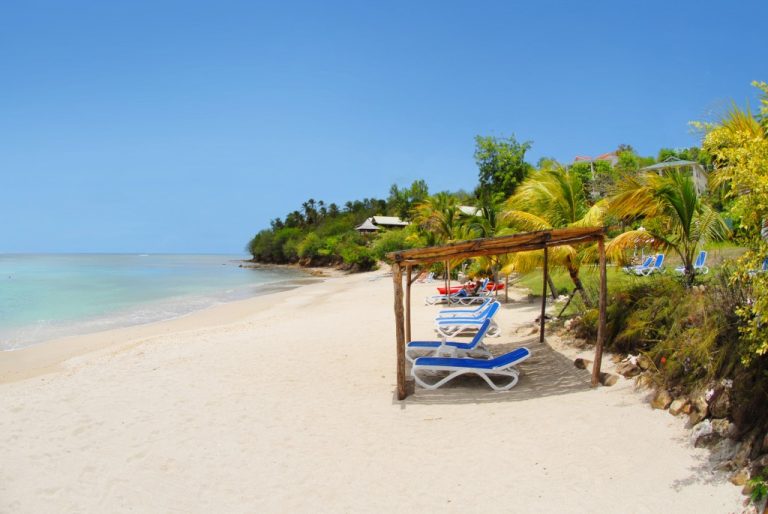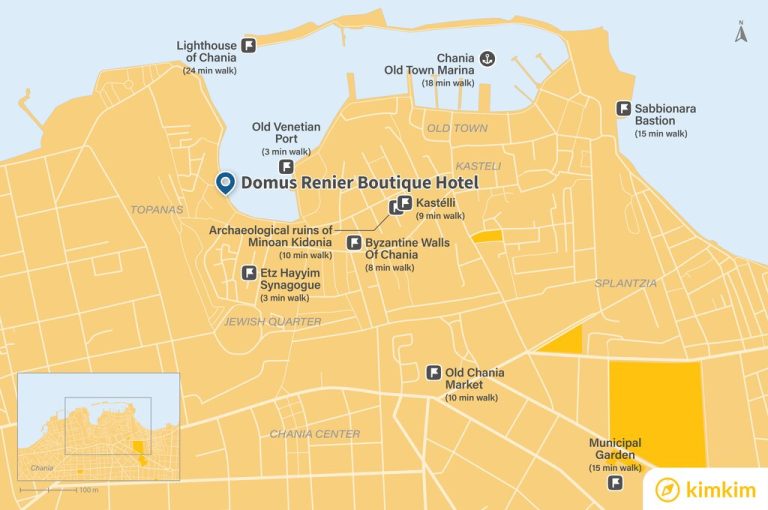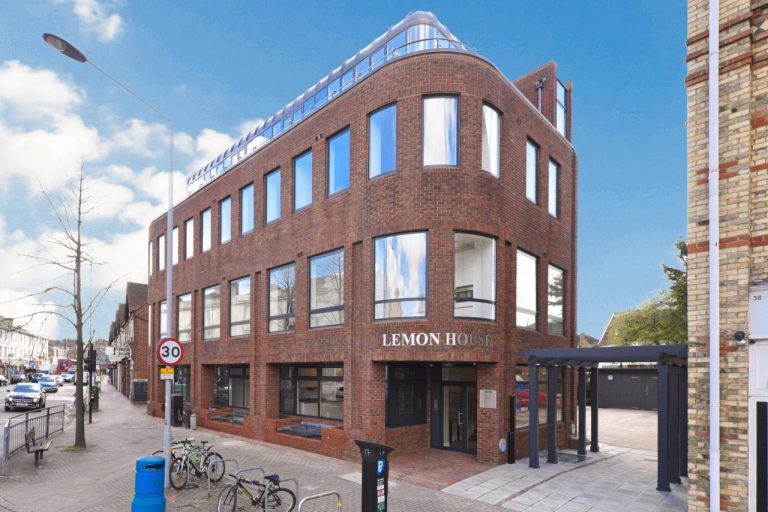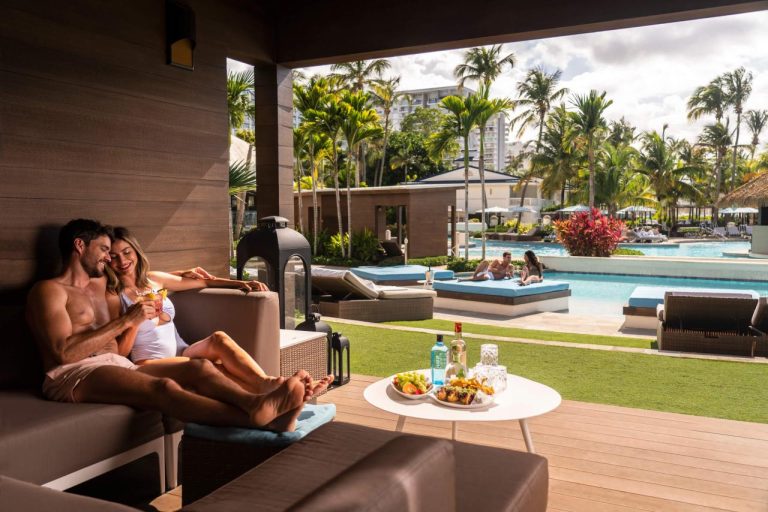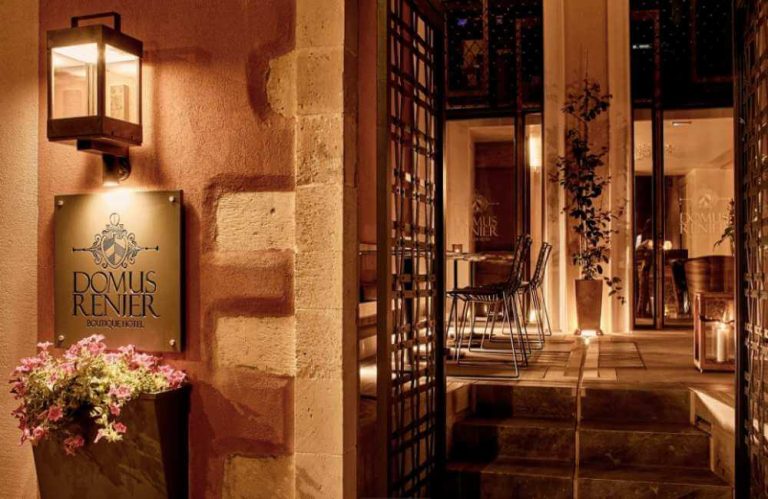La Boutique Hotel A Unique Experience
La Boutique Hotel offers a distinctive travel experience, standing apart from traditional hotels. These smaller, curated establishments prioritize personalized service and a unique atmosphere, catering to discerning travelers seeking more than just a room. They often feature carefully designed interiors, exceptional amenities, and strategic locations to enhance the guest’s journey.
From the unique design aesthetics to the thoughtful location choices, each aspect of a boutique hotel is meticulously crafted to provide a personalized experience. The curated services and attention to detail create a memorable stay that transcends the ordinary hotel experience.
Defining “La Boutique Hotel”
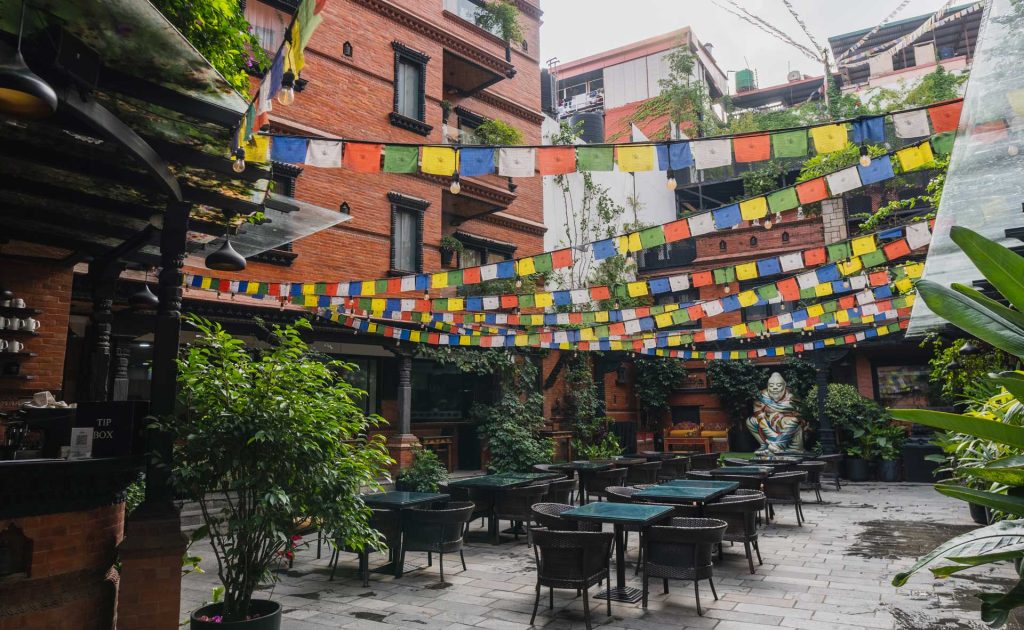
A boutique hotel is a distinct type of accommodation that prioritizes personalized service and a unique atmosphere over sheer scale. These hotels often feature a curated collection of design elements, exceptional amenities, and a focused, intimate approach to guest experiences. They are typically smaller in size compared to large chain hotels, fostering a more personalized and intimate environment.
Boutique hotels cater to discerning travelers seeking an experience that transcends the ordinary, offering a blend of comfort, style, and local character. They represent a departure from the standardized, often impersonal experience of many large chain hotels.
Characteristics of Boutique Hotels
Boutique hotels are characterized by their unique design, often incorporating locally inspired aesthetics and artistic elements. They prioritize high-quality furnishings, bespoke décor, and curated artwork, creating a distinctive ambiance. This emphasis on design and atmosphere is a key differentiator from other hotel types.
Types of Boutique Hotels
Several different types of boutique hotels exist, each with its distinct charm and focus. These include:
- Urban Boutique Hotels: Often located in vibrant city centers, these hotels capitalize on the energy of the surrounding area. They frequently feature stylish interiors, intimate lounges, and convenient access to local attractions and dining experiences. For instance, a hotel in a bustling city like New York might emphasize art deco design and offer curated walking tours to local neighborhoods.
- Beachfront Boutique Hotels: These hotels are typically located in coastal areas, emphasizing a relaxing beachside experience. Amenities often include private pools, beachfront access, and locally sourced dining options. For example, a beachfront hotel in the Maldives could focus on minimalist design, with comfortable sun loungers and direct access to white sand beaches.
- Historic Boutique Hotels: These hotels often repurpose historical buildings or structures, retaining architectural elements and incorporating them into a modern design. They often feature a sense of history and character, drawing on the location’s past. Consider a former railway station transformed into a hotel, preserving the train station’s charm and integrating it into a modern hotel design.
Target Audience
Boutique hotels generally appeal to travelers seeking a refined, personalized experience. This target audience often includes business travelers looking for a unique and stylish alternative to standard corporate hotels. Furthermore, affluent leisure travelers, couples, and groups seeking an exceptional and memorable stay often gravitate towards the personalized touch and unique aesthetic of boutique hotels. Travelers who value local experiences and unique design often find themselves drawn to this niche market.
Defining Elements of a Boutique Hotel Experience
A boutique hotel experience is characterized by:
- Personalized Service: Staff members are attentive and responsive to guest needs, creating a welcoming and memorable experience.
- Curated Amenities: Amenities are carefully selected and designed to enhance the guest experience. This includes exceptional bedding, premium toiletries, and access to unique local experiences.
- Local Focus: Boutique hotels often emphasize local art, culture, and cuisine. This is achieved by partnering with local artists, supporting local businesses, and featuring locally sourced ingredients in dining options.
Comparison with Other Hotel Types
Boutique hotels differ from large chain hotels in several key aspects:
| Feature | Boutique Hotel | Large Chain Hotel |
|---|---|---|
| Size | Typically smaller, more intimate | Generally larger, more impersonal |
| Service | Personalized, attentive | Standardized, often impersonal |
| Design | Unique, often locally inspired | Often standardized, consistent |
| Atmosphere | Intimate, curated | Large, sometimes overwhelming |
Boutique hotels provide a more exclusive and personalized experience compared to the broader spectrum of large chain hotels. The focus on local experiences, unique design, and personalized service differentiates them from standard hotel offerings.
Services and Amenities: La Boutique Hotel
Boutique hotels prioritize a unique and personalized experience, often exceeding the expectations of standard hotels. They offer a curated selection of services and amenities designed to cater to discerning travelers seeking more than just a place to stay. These hotels aim to create a memorable and enriching stay through attentive service and thoughtful details.
Boutique hotels strive to differentiate themselves through tailored experiences and a focus on guest satisfaction. They understand that a discerning traveler appreciates more than just basic accommodations; they value personalized attention and thoughtfully curated amenities that enhance their stay. This often translates into a more intimate and enriching travel experience.
Typical Services and Amenities
Boutique hotels frequently offer a range of services and amenities beyond those found in standard hotels. These include personalized check-in and check-out procedures, concierge services for arranging tours, restaurants, or activities, and complimentary amenities like high-speed internet access, newspapers, and local guides. The goal is to provide guests with a seamless and enjoyable experience.
Unique Services Distinguishing Boutique Hotels
Boutique hotels often excel in providing unique services that set them apart. Examples include personalized recommendations for local restaurants, bespoke tours curated by experienced guides, exclusive access to private events or experiences, and partnerships with local artisans or businesses. These bespoke experiences add value and create lasting memories for guests. For instance, a boutique hotel in a wine region might offer exclusive wine tastings or pairings with local chefs.
Personalized Service in a Boutique Setting
Personalized service is paramount in a boutique hotel environment. Staff members are trained to anticipate guest needs and tailor services to individual preferences. This might include remembering guest preferences from previous stays, offering customized recommendations for dining or activities, or providing assistance with arranging special requests. This level of personalized service builds strong relationships with guests, creating a sense of community and fostering loyalty.
Catering to Discerning Travelers
Boutique hotels cater to discerning travelers by offering a curated selection of experiences, personalized service, and unique amenities. They understand the need for bespoke experiences that go beyond the ordinary. A hotel’s design, ambiance, and the quality of its service play a significant role in attracting and retaining this discerning clientele. Factors such as exceptional local knowledge, attention to detail, and a commitment to sustainable practices are often valued highly.
Enhancing Guest Experience Through Services
Boutique hotels enhance the guest experience by thoughtfully curating amenities and services that reflect a unique style and personality. This may involve integrating local art and culture into the hotel’s design and ambiance, providing access to exclusive local experiences, or offering opportunities for guests to engage with the community. These aspects contribute to a truly enriching and memorable stay. A boutique hotel might host local artists’ exhibitions or collaborate with local chefs for special tasting menus.
Design and Atmosphere
Boutique hotels prioritize a unique and memorable experience for guests, and this is largely achieved through carefully curated design and atmosphere. The careful selection of design elements, from color palettes to furniture styles, creates a distinct ambiance that sets the hotel apart from other accommodations. This approach fosters a sense of place and encourages guests to feel at ease and enjoy their stay.
The atmosphere and design elements within a boutique hotel are meticulously planned to enhance the overall guest experience. From the moment guests enter, the design elements aim to create a positive and memorable impression. The overall atmosphere should evoke a sense of warmth, sophistication, or another desired feeling, depending on the specific theme of the hotel.
Design Elements Contributing to Unique Character
The design elements that contribute to the unique character of a boutique hotel are diverse and include thoughtful choices in color palettes, furniture styles, lighting, and even artwork. These elements work in synergy to evoke a specific mood or atmosphere. For example, a hotel aiming for a modern aesthetic might utilize sleek lines, neutral colors, and contemporary lighting fixtures. Conversely, a hotel seeking a rustic ambiance might incorporate natural materials like wood and stone, warmer color palettes, and comfortable seating arrangements. This careful consideration in the design process allows the hotel to express its unique personality and appeal to a specific target audience.
Atmosphere and Ambiance
The atmosphere and ambiance of a boutique hotel are crucial to its success. The goal is to create an environment that is both inviting and stylish, promoting relaxation and enjoyment. Hotels often strive for a feeling of intimacy and exclusivity, making guests feel welcome and special. This atmosphere is achieved through the careful selection of colors, textures, and lighting, as well as through the choice of music and the overall layout of the hotel.
Examples of Design Styles
Various design styles are commonly employed in boutique hotels to create a distinct identity. Modern design often incorporates clean lines, minimalist furniture, and neutral color palettes, creating a sophisticated and contemporary atmosphere. Rustic design emphasizes natural materials, earthy tones, and comfortable furniture, offering a warm and inviting ambiance. Vintage design evokes a sense of nostalgia with the use of antique furniture, repurposed materials, and rich colors, creating a unique and elegant experience.
Influence of Design on Guest Experience
The design of a boutique hotel significantly impacts the guest experience. Well-executed design creates a memorable first impression, contributing to a sense of comfort and relaxation. A thoughtfully designed space can enhance the guest’s overall perception of the hotel, making them feel welcomed and valued. The visual appeal of the hotel contributes to a positive experience, fostering feelings of satisfaction and enjoyment throughout the guest’s stay.
Comparison of Design Aesthetics
| Hotel Style | Color Palette | Furniture Style | Overall Impression |
|---|---|---|---|
| Modern | Neutral tones, pops of color | Sleek, minimalist | Clean, sophisticated |
| Rustic | Earthy tones | Natural materials | Warm, inviting |
| Vintage | Darker, rich colors | Antique, repurposed | Nostalgic, elegant |
Location and Accessibility
Boutique hotels thrive in locations that resonate with their unique character and target audience. Strategic placement is crucial for maximizing guest experience and fostering a sense of community. Ideal locations offer a blend of proximity to attractions, ease of transportation, and a captivating neighborhood atmosphere.
The success of a boutique hotel hinges significantly on its location. A well-chosen location can significantly enhance the guest experience, fostering memorable stays and positive word-of-mouth referrals. This is achieved by carefully considering the area’s attractions, transportation options, and the local ambiance.
Ideal Locations for Boutique Hotels
Boutique hotels flourish in vibrant, walkable neighborhoods, often near cultural hotspots or areas with unique charm. Proximity to key attractions, such as museums, historical sites, and renowned restaurants, creates an environment for exploration and discovery. The area’s overall character, from its architectural style to its local shops and eateries, contributes significantly to the hotel’s ambiance.
Importance of Proximity to Attractions and Amenities
A hotel’s location directly impacts guest activities and enjoyment. Being near attractions allows guests to readily immerse themselves in the local culture and history. Convenient access to shops and dining options provides ample opportunities for exploration and discovery, enriching their stay. For example, a hotel situated near a renowned art museum will naturally attract art enthusiasts and draw visitors to the hotel itself.
Significance of a Hotel’s Accessibility to Transportation
Ease of transportation is paramount. Guests should be able to effortlessly reach the hotel and navigate to attractions using public transportation or ride-sharing services. This reduces stress and enhances their overall experience. Reliable transportation options, such as efficient subway systems or bus routes, make exploring the city convenient.
How Location Enhances the Overall Experience for the Guest
A well-chosen location is instrumental in crafting a memorable experience. Proximity to attractions, convenient transportation, and a captivating neighborhood atmosphere contribute to a sense of immersion and adventure. The hotel becomes more than just a place to stay; it becomes a gateway to the destination itself. Guests feel welcomed into the heart of the local scene.
Key Factors Influencing a Boutique Hotel’s Location
| Location Factor | Description | Importance |
|---|---|---|
| Proximity to attractions | Distance to museums, restaurants, shops, and other points of interest. | Enhances exploration opportunities and fosters a sense of immersion in the local culture. |
| Transportation links | Accessibility to public transport, taxis, and ride-sharing services. | Provides ease of travel and reduces the stress of navigating the city. |
| Neighborhood character | The local atmosphere, architectural style, and overall vibe of the area. | Creates a unique and authentic experience that reflects the destination’s charm. |
Pricing and Value Proposition
Boutique hotels, by their very nature, offer a unique experience that often commands a price premium over traditional hotels. This premium reflects the bespoke services, personalized attention, and curated atmosphere that distinguish them. Understanding the pricing strategies and the value proposition behind this premium is crucial for prospective guests and business owners alike.
Boutique hotels frequently employ a differentiated pricing model, taking into account factors beyond simply room size and amenities. This approach is designed to maximize the perceived value for guests, reflecting the unique experience and high-quality service offered.
Pricing Strategies for Boutique Hotels
Boutique hotels often employ dynamic pricing strategies, adjusting rates based on demand, seasonality, and special events. This allows them to optimize revenue while ensuring that the perceived value remains consistent with the offered experience. Furthermore, they frequently utilize tiered pricing models, offering different packages and options for varying levels of service and amenities. For instance, a suite with a private balcony might come with a higher price tag than a standard room, but this premium is justified by the added space and amenities.
Value Proposition Differentiating Boutique Hotels
The value proposition of a boutique hotel hinges on its ability to provide a unique and memorable experience. This goes beyond basic accommodations; it encompasses a curated atmosphere, personalized service, and an emphasis on local experiences. Unlike large chains, boutique hotels often focus on specific themes or niche markets, creating a distinct brand identity that resonates with particular customer segments. For example, a hotel focused on art might feature original artwork throughout the property, a curated selection of local artists, and special events related to the arts, thus elevating the experience beyond a simple stay.
Factors Influencing Boutique Hotel Price Points
Several factors converge to determine the price point of a boutique hotel. These include the location’s desirability, the quality of the design and décor, the caliber of services offered, and the overall brand reputation. For instance, a hotel located in a prime city center will likely command a higher price than one situated in a less central area. Similarly, hotels with renowned chefs and gourmet dining experiences will often have higher room rates. Furthermore, the level of personalization and customization of services will influence pricing. A hotel offering personalized concierge services or curated experiences for guests may charge a premium reflecting the value of these exclusive services.
Comparison of Pricing Models
Traditional hotels often rely on a more standardized pricing model, emphasizing factors like room size and amenities. In contrast, boutique hotels tend to focus on creating a unique experience and often adjust pricing to reflect the value proposition of this experience. This allows them to charge a premium, but only when the experience matches or exceeds the value proposition for the guest. Consider a hotel with a rooftop bar with panoramic city views. The premium price for a stay in that hotel is justified by the unique experience offered.
Unique Experiences Justifying the Price
Boutique hotels frequently incorporate unique experiences into their pricing structure, justifying the premium they charge. These experiences often include personalized services, curated activities, and exclusive access to local attractions. A hotel might offer a private wine tasting with a local vintner or a guided tour of a hidden local landmark. This added value elevates the stay from a mere overnight accommodation to a curated experience, thus justifying the higher price.
Marketing and Branding

Source: ac.th
Boutique hotels, often positioned as curated experiences, employ distinct marketing strategies to attract discerning travelers. Their success hinges on building a strong brand identity that resonates with their target audience and effectively communicating their unique value proposition. Visual storytelling plays a crucial role in conveying the essence of the hotel’s atmosphere and experience.
Boutique hotels meticulously craft their brand identity to reflect their specific ambiance and target demographic. This involves carefully selecting a brand voice and visual style that aligns with the hotel’s overall character. For instance, a trendy, modern boutique hotel might adopt a vibrant, contemporary aesthetic, while a historic boutique hotel might emphasize heritage and elegance.
Marketing Strategies
Boutique hotels utilize a multifaceted approach to marketing, leveraging various channels to reach their target audience. Direct marketing initiatives, such as targeted email campaigns, play a role in building relationships with potential guests. Collaborations with travel bloggers and influencers can significantly amplify their reach and credibility. Strategic partnerships with complementary businesses, like local restaurants or attractions, can provide synergistic benefits. The overarching goal is to position the hotel as a desirable destination for discerning travelers seeking a unique experience.
Building Brand Identity
A strong brand identity is fundamental to the success of a boutique hotel. This involves defining the hotel’s core values, understanding its target audience, and crafting a distinct brand voice and visual style. The brand identity must resonate with the hotel’s unique atmosphere and services. For example, a hotel emphasizing sustainability might use eco-friendly imagery and language in its branding.
Visual Storytelling, La Boutique Hotel
Visual storytelling is critical for boutique hotels. High-quality photography and videography showcase the hotel’s unique design, atmosphere, and amenities. Visuals effectively communicate the hotel’s brand identity and create an immersive experience for potential guests. For instance, showcasing a hotel’s elegant rooms, vibrant common areas, and breathtaking views in high-resolution images and videos can greatly influence potential guests’ perceptions.
Social Media and Digital Channels
Social media platforms like Instagram and Facebook are vital tools for boutique hotels. They allow for direct engagement with potential guests, showcasing the hotel’s ambiance and lifestyle. The use of high-quality visuals, engaging captions, and interactive content can enhance the brand’s online presence. The ability to run targeted advertising campaigns on social media further refines the hotel’s marketing reach. These digital channels are pivotal in fostering community and generating excitement.
Effective Marketing Channels
| Marketing Channel | Description | Effectiveness |
|---|---|---|
| Social media | Leveraging platforms like Instagram and Facebook to showcase the hotel’s unique atmosphere, services, and amenities. Interactive content and targeted advertising campaigns enhance engagement and visibility. | High effectiveness in visual appeal and community building. |
| Website | A well-designed website acts as the central hub for information and booking. Clear and concise information, high-quality imagery, and user-friendly navigation are key. | Essential for providing information, facilitating bookings, and showcasing the hotel’s offerings. |
| Partnerships | Collaborating with local businesses, travel bloggers, and influencers can expand reach and enhance credibility. This approach often fosters synergistic relationships and benefits both parties. | Provides a wider reach, establishes credibility, and offers exposure to a broader audience. |
| Public Relations | Crafting compelling press releases and engaging with media outlets can generate positive coverage and elevate brand visibility. | Establishes brand reputation and attracts media attention. |
Sustainability and Ethical Practices
Boutique hotels are increasingly recognizing the importance of sustainability and ethical practices, moving beyond mere environmental consciousness to encompass social responsibility. This commitment extends beyond operational efficiency; it shapes the guest experience, fostering a sense of connection with the local community and environment.
A commitment to sustainability in boutique hotels creates a positive brand image, attracting environmentally conscious travelers who prioritize responsible tourism. Ethical practices, such as fair labor standards and community engagement, further enhance the hotel’s reputation and foster a positive impact on the local area.
Importance of Sustainability in Boutique Hotels
Sustainable practices are crucial for boutique hotels to thrive in the long term. Environmental responsibility reduces operational costs and promotes resource efficiency. A focus on sustainability attracts environmentally conscious travelers who value responsible tourism, contributing to increased occupancy rates and profitability. Furthermore, a strong commitment to sustainability can enhance the hotel’s brand image, differentiating it from competitors and creating a positive brand identity.
Ethical Practices for Positive Guest Experience and Social Responsibility
Ethical practices are essential for creating a positive guest experience and fostering social responsibility. These practices include paying fair wages to employees, supporting local businesses and communities through partnerships, and minimizing the hotel’s environmental footprint. This holistic approach demonstrates a genuine commitment to the local area and its people. Guest experience is enhanced by the sense of authenticity and connection fostered by ethical practices.
Eco-Friendly Practices Enhancing Boutique Hotel Image
Eco-friendly practices are powerful tools for enhancing a boutique hotel’s image. These practices include using renewable energy sources, implementing water conservation measures, and minimizing waste. By demonstrating a commitment to environmental responsibility, hotels attract environmentally conscious travelers, contributing to a positive brand image.
Examples of Sustainable Practices in Boutique Hotels
Many boutique hotels incorporate various sustainable practices into their operations. For instance, some hotels use solar panels for energy generation, rainwater harvesting for water conservation, and composting programs for waste reduction. Others partner with local farmers and artisans to source products, promoting local economies and supporting community development.
Methods for Reducing Environmental Footprint
Reducing the environmental footprint of a boutique hotel involves a multifaceted approach. Energy efficiency measures, such as using energy-efficient lighting and appliances, and water conservation techniques, such as low-flow fixtures, are key components. Waste reduction strategies, like implementing recycling programs and minimizing single-use plastics, also play a crucial role. These strategies collectively contribute to a smaller environmental impact. Furthermore, sourcing locally and supporting sustainable suppliers further reduces the hotel’s carbon footprint and promotes economic benefits for the local community. The adoption of sustainable building materials and construction methods also contributes to a smaller environmental impact.
Final Conclusion
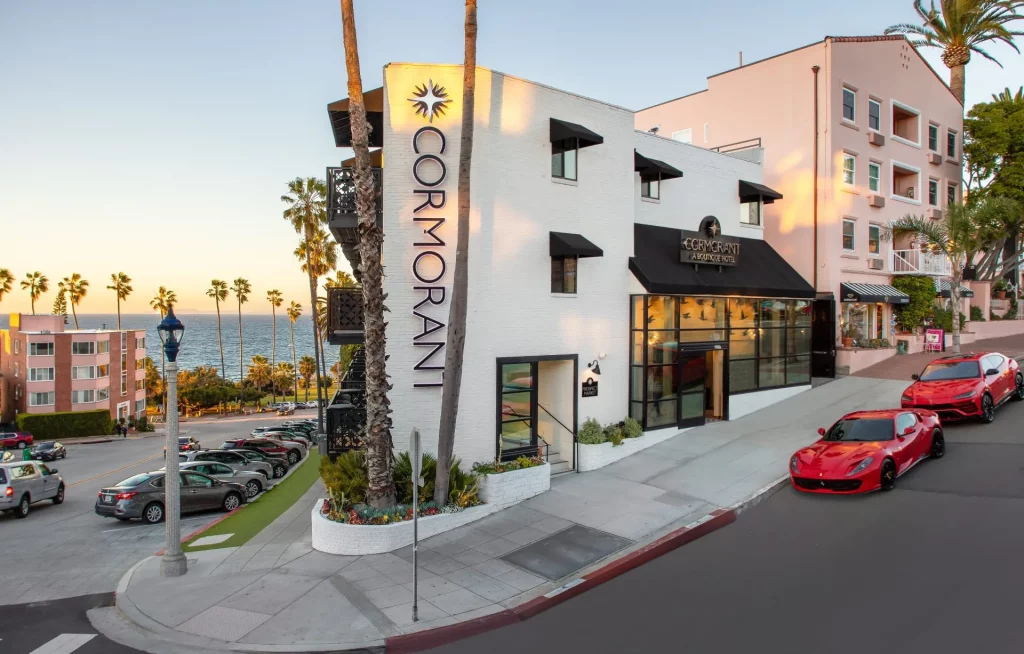
In conclusion, la boutique hotel represents a compelling alternative to standard hotels. Their unique blend of personalized service, carefully crafted design, and strategic locations creates a truly memorable experience for discerning travelers. The emphasis on sustainability and ethical practices further distinguishes them, making them an attractive option for those seeking a responsible and rewarding travel choice.
